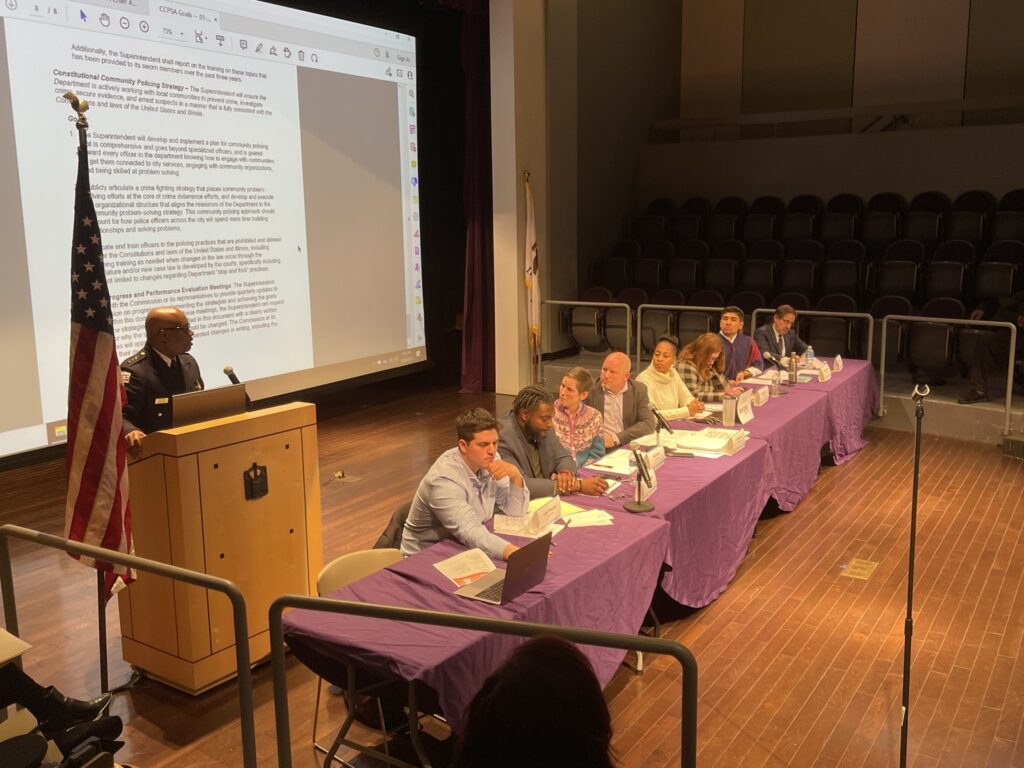(CHICAGO)—Chicago’s new civilian police oversight commission challenged the Chicago Police Department’s use of the so-called gang database in its first directive issued Jan. 26 during a community meeting at Olive-Harvey College.
In his opening remarks at the meeting, Anthony Driver, president of the Community Commission for Public Safety and Accountability, said “the gang database as we know it is a racist policy. Ninety-plus percent of the people on this database are people that are Black and Brown.”
The Chicago Police Department (CPD) has drawn criticism from the Chicagoans for an End to the Gang Database coalition for use of the Chicago Enterprise Information System (CEIS), CPD’s latest revamped version of the gang database which has been in use in various formats since the 1980s to identify and track alleged gang members. In April 2019 a City of Chicago Inspector General report found the gang database to be saturated with errors and revealed that people’s information is shared across hundreds of agencies without regulation.
Despite the criticism and a class-action lawsuit, a March 2021 follow-up report from the Inspector General revealed CPD was still using data from the flawed database.
The new commission, appointed by the mayor in August 2022 after the city passed the Empowering Communities for Public Safety (ECPS) ordinance, is authorized to draft and review CPD policies when such policies are classified as general orders. However, CPD has classified the CEIS policy as a special order allowing the department to bypass commission review.
During the meeting, Driver said the “commission does not have authority over special orders and therefore cannot weigh in on the gang database.”
To counter the evasion, the commission voted to demand that CPD create a policy on the use of the CEIS in the form of a general order if they want to collect and use gang data. The commission hopes their proposal will force CPD to draft general order policies on their use of CEIS that will be open for debate and require commission approval before implementation.
Although CPD did not respond to the commission’s directive, it will have 60 days to review and comment on the commission’s directive.
The commission’s police directive is available for review and public comment on the commission’s website.


![Homeland Security officers an individual during an immigration enforcement operation. [Credit HSI Media Library]](https://theclick.news/wp-content/uploads/2025/05/hsi.jpg)